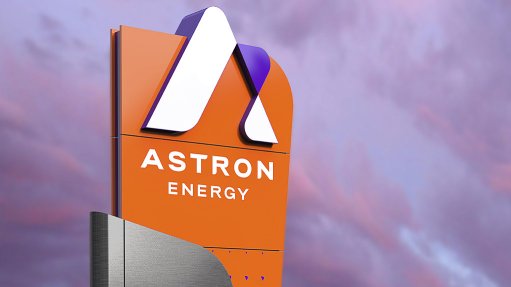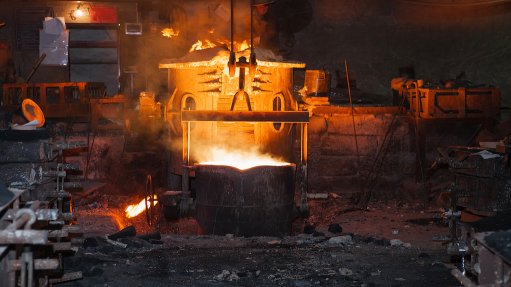Low tariffs, high risk - what’s the true cost of cheap water in South Africa?
This article has been supplied and will be available for a limited time only on this website.
By: Robert Erasmus - Managing Director at Sanitech
In a country where water scarcity is a growing concern, the price of water in South Africa remains surprisingly low. This might seem like a win for consumers and businesses alike: affordable access to a critical resource. But the reality is far more complex. When water is undervalued, businesses and households lack the incentive to avoid waste or invest in efficiency. Over time, this short-sightedness puts continuity, productivity, and even public health at serious risk. As systems degrade and demand grows, both households and industries will face rising costs and declining reliability.
Cheap water breeds complacency
The low cost of water has created a dangerous sense of comfort for South Africans. Businesses and households have little financial incentive to fix leaking taps, install water-saving devices, or upgrade systems to be more efficient. Compared to electricity, where price hikes and load-shedding have driven the adoption of solar and battery solutions, water efficiency and security simply doesn’t feel like a priority.
Because of this, waste goes unchecked, and the basics, like addressing leaks or using greywater systems, are often overlooked because their return on investment isn’t immediately obvious. For many companies, water is still considered an unlimited and inexpensive input - but this mindset is short-sighted. The question we should be asking isn’t "how much does water cost?" but rather "what will it cost if we no longer have it?"
Failing infrastructure is a ticking time bomb
As it stands, South Africa loses nearly 20% of its clean, treated water before it even reaches the tap. This loss is due to leaks, illegal connections, and poor maintenance. This is no technical issue; it is a national crisis in the making. Where infrastructure ages and fails, municipalities struggle to keep up with growing demand - we’ve passed the early warning signs of breakdown and headed straight into more frequent water outages as problems arise. Many households and businesses have already faced unexpected extended water outages, often with little notice or support.
These disruptions are no longer isolated events; they are becoming part of a worrying pattern. As infrastructure continues to deteriorate, the cost of maintenance and upgrades will rise, and so too will water tariffs. Water will become expensive, and cost-cutting measures even more so. Businesses that act now to improve their efficiency and water security will be far better positioned than those left scrambling when the price and pressure hit the roof.
The private sector must take the lead
Although the maintenance of public water infrastructure falls under the responsibility of government and municipalities, the private sector has a critical role to play in managing everything that happens behind the meter. This is the point where businesses gain full control over their water use and can implement meaningful improvements.
Here, organisations should be asking important operational questions: Are we using water as efficiently as possible? Are we separating greywater from clean water and reusing it where appropriate? Are our systems and processes optimised to reduce water waste? What would happen to our operations if the municipality could not deliver water tomorrow? These are not just environmental considerations, they are essential to business strategy and risk planning.
In some cases, businesses may need to invest in off-grid solutions with their own water sources or on-site treatment facilities. While these measures will not deliver immediate cost savings, it is more important to gain long-term protection against water shortages, supply interruptions, or sudden tariff increases. This is less about short-term gain and more about ensuring continuity and resilience to better face an increasingly uncertain future.
Invest now or pay later
There is a valuable lesson that must be taken from South Africa’s energy crisis. When load-shedding intensified, solar and backup power solutions became hot commodities almost overnight. The demand drove up prices and created bottlenecks, leaving many scrambling. We are headed for the same scenario with water. If businesses wait until water is no longer reliably available or until the cost becomes prohibitively high, it will be too late to react cost-effectively. By then, infrastructure will be more expensive, competition for resources will increase, and the risks to operations will be far greater.
Now is the time to get ahead. Businesses should be proactively investing in water-efficient technologies, implementing reuse systems, and exploring alternative water sources. Not because water is expensive today, but because the cost of inaction will be far greater tomorrow. While cheap water might feel like a benefit, it is masking a much deeper problem. If we continue to treat it as an unlimited resource, we are setting ourselves up for a future defined by scarcity, disruption, and rising costs. The private sector has the power and the responsibility to act now - because when the water runs dry, it won’t just be a utility issue; it will move from business disruption to human crisis.
Comments
Press Office
Announcements
What's On
Subscribe to improve your user experience...
Option 1 (equivalent of R125 a month):
Receive a weekly copy of Creamer Media's Engineering News & Mining Weekly magazine
(print copy for those in South Africa and e-magazine for those outside of South Africa)
Receive daily email newsletters
Access to full search results
Access archive of magazine back copies
Access to Projects in Progress
Access to ONE Research Report of your choice in PDF format
Option 2 (equivalent of R375 a month):
All benefits from Option 1
PLUS
Access to Creamer Media's Research Channel Africa for ALL Research Reports, in PDF format, on various industrial and mining sectors
including Electricity; Water; Energy Transition; Hydrogen; Roads, Rail and Ports; Coal; Gold; Platinum; Battery Metals; etc.
Already a subscriber?
Forgotten your password?
Receive weekly copy of Creamer Media's Engineering News & Mining Weekly magazine (print copy for those in South Africa and e-magazine for those outside of South Africa)
➕
Recieve daily email newsletters
➕
Access to full search results
➕
Access archive of magazine back copies
➕
Access to Projects in Progress
➕
Access to ONE Research Report of your choice in PDF format
RESEARCH CHANNEL AFRICA
R4500 (equivalent of R375 a month)
SUBSCRIBEAll benefits from Option 1
➕
Access to Creamer Media's Research Channel Africa for ALL Research Reports on various industrial and mining sectors, in PDF format, including on:
Electricity
➕
Water
➕
Energy Transition
➕
Hydrogen
➕
Roads, Rail and Ports
➕
Coal
➕
Gold
➕
Platinum
➕
Battery Metals
➕
etc.
Receive all benefits from Option 1 or Option 2 delivered to numerous people at your company
➕
Multiple User names and Passwords for simultaneous log-ins
➕
Intranet integration access to all in your organisation





















